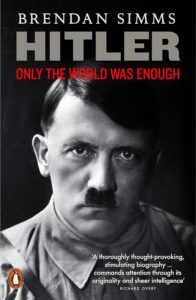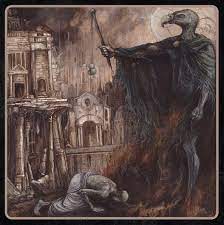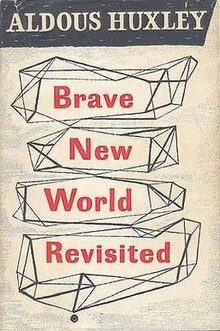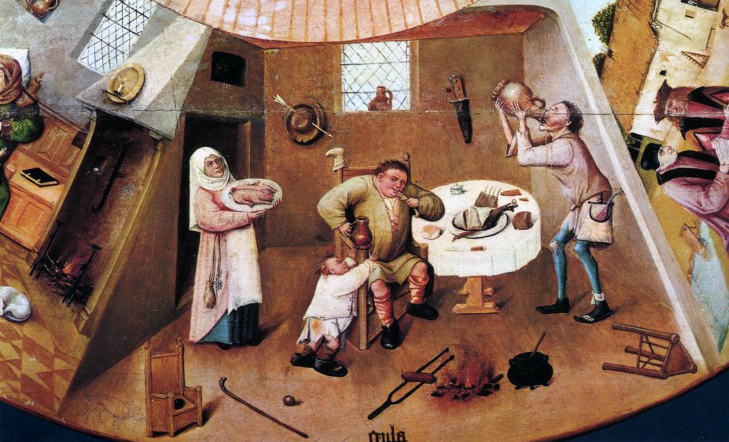 From pesticides to antipsychotics
From pesticides to antipsychotics
May 1954 is a memorable date for psychiatrists. For the first time, a neuroleptic (popularly known as ‘antipsychotic’) was marketed, chlorpromazine, commercially named Thorazine in the United States and Largactil in some European countries, which revolutionised treatment in the profession.
The first generation of phenothiazines from which chlorpromazine emerged had been used for pesticide purposes in agriculture. In addition, experiments were known to induce catalepsy in animals.
The neuroleptic was a chemical intentionally designed as a neurotoxin, but millions of Thorazine prescriptions were prescribed in the United States. Under the effects of chlorpromazine, patients now could be ‘moved about like puppets’, and the first psychiatrist who experimented in the United States with this neuroleptic said that it ‘may prove to be a pharmacological substitute for lobotomy’.[23] The campaign to sell Thorazine to the American society was so fierce that the same professionals called ‘Thorazine assault troops’ the propagandists of the company that manufactured them.[24]
This was the first massive incursion in the world of public relations carried out by a pharmaceutical company in a market that previously was very small: institutional psychiatry. In its first year of marketing, Smith, Klein & French obtained 75 million dollars with that drug. The rest, as they say, is history.[25]
In 1955, Time magazine called the professionals who opposed chlorpromazine ‘ivory tower critics’. Gregory Zilboorg, the same psychiatrist who held the authors of the medieval Malleus Maleficarum in high esteem, said that the public was being deceived and that the drug only served to control the inpatient. Another doctor raised his voice and said that chlorpromazine was more dangerous than heroin and cocaine. But the publicity muffled all internal dissidence.
By the mid-1960s more than ten thousand medical articles had been written about chlorpromazine. There were television campaigns that omitted any mention of the Parkinsonian-like effects of the drug, and the magazines were paid substantial sums if they advertised in their main articles the miraculous chemical. Time, Fortune and the New York Times were some of these prostitutes of the pharmaceutical corporations.
The use of neuroleptics soon was considered cutting-edge among psychiatric treatments, triumphing over the induced commas with insulin, electroshock and lobotomy. In the 1960s the revolution of this miraculous alchemy, from pesticides to antipsychotics, was consummated and the mindset of the public had been implanted with the message that they were ‘anti-psychotic’ medicines: an idea that persists today.
By 1970, nineteen million prescriptions for neuroleptics had been prescribed, and not just for people who were disturbed. Some juvenile delinquents and rebellious teenagers who were given the neuroleptic called it ‘zombie juice’, but the professionals counterattacked by introducing the euphemism ‘major tranquilizers’.
At the end of March 2001 in France, Germany, Italy, Spain, the United Kingdom and the United States, the prescription number of so-called ‘anti-psychotics’ was estimated in 43 million. In the case of children and adolescents, one study showed that between 1987 and 1996 the number of children who were given the drug had doubled. Between 1996 and 2000 the figure multiplied to reach the figure of one in fifty, although the most important age group was between 5 and 9 years old.[26]
The propaganda through which multinational drug companies infect civil society about the ‘need’ to take these neurotoxins is performed through campaigns of ‘education’ to medical visitors and counsellors of schools and parents. Joe Sharkey, a financial journalist and author of Bedlam: Greed, Profiteering and Fraud in a Mental Health System Gone Crazy, has reported that by the end of the 1980s, 25 percent of the earnings paid by health insurance went to the pockets of those who work in the area of mental health, largely due to the psychiatric treatment of these rebellious adolescents.[27]
Furthermore, since the 1970s these professionals entered into a frank association with the drug companies. The consortium between psychiatrists and Big Pharma (pharmaceutical multinationals) is so brazen that all psychiatric conferences are financed by these corporations, and in some medical centres all laboratory research is also financed by multinationals. These companies also fund psychiatric journals. In addition, a study of eight hundred articles by some of the most prestigious scientific journals that do not specialise in psychiatry (Science, Nature, Lancet, The New England Journal of Medicine and the Proceedings of the National Academy of Medicine) found that 34 percent of the authors had financial interests with the Big Pharma.
The pharmaceutical industry is the largest sponsor of psychiatric research in the United States, including research in universities and medical schools. It is estimated that in 1994 alone it spent one and a half billion dollars in academic research.[28] Some people have used the expression ‘Is academic medicine for sale?’ to describe this situation.
This is fundamental to understand why I say that psychiatrists, despite their impeccable medical credentials, enact a biased science. It is clear that the sponsorship that these companies provide results in biologicistic and pro-drug bias in research. The editors of specialised journals are very cautious when publishing articles by professionals who criticise biological psychiatry, especially if they question the effectiveness of psychotropic drugs or if they mention the terrible effects of drugs, such as tardive dyskinesia and dystonia produced by the so-called ‘antipsychotic’, symptoms which doctors euphemistically call ‘extrapyramidal symptoms’.
Drug companies spend huge sums on advertisements that appear in specialised journals, and the publishers are not willing to offend their sponsors with articles that denounce the epidemics of drug-induced tardive dyskinesia, on the threat that the companies will withdraw the advertising. The economic dependence of the journals with these companies leads not only to discretion, but many authors resort to self-censorship. As some mental health professionals say, the pharmaceutical industry owns the data obtained in the clinical tests it subsidizes and decides which studies should be published; chooses the authors, writes the articles and even the reviews to interpret the data.[29]
On the other hand, it is natural for new professionals in medical research to choose the area of the most promising future, that which is generously financed by the drug companies. That is where the funds for their careers are found. There is a whole book on the subject, How the Pharmaceutical Industry Bankrolled the Unholy Marriage Between Science and Business of Linda Marsa, and this trend is much more evident in psychiatry. In a psychiatric journal there is less guarantee of scientific accuracy than in other specialised journals. In the profession it is no longer heard, as it used to be in the 1950s and 1960s, that abusive parents drive their children mad. The economic interests to hide this reality are enormous.
 For example, in the mid-1990s a pharmaceutical market analyst claimed that the US $1 billion market for neuroleptics could grow to 4.5 billion a year. In May 2001, a report by the Wall Street Journal evaluated the neuroleptic market at 5 billion dollars a year, five hundred percent growth in five years.
For example, in the mid-1990s a pharmaceutical market analyst claimed that the US $1 billion market for neuroleptics could grow to 4.5 billion a year. In May 2001, a report by the Wall Street Journal evaluated the neuroleptic market at 5 billion dollars a year, five hundred percent growth in five years.
The total sales of neuroleptics in the United States in 2000 was 2.5 billion dollars, and international sales reached 6 billion dollars that same year. Only the neuroleptic Zyprexa gave Eli Lilly $ 1 billion in profits in 1998 (the incorrectly referred to as ‘antipsychotics’ are even used in veterinary!). In 1999/2000, the United States led the Western consumption of neuroleptics with 65 percent, followed by Europe with 22 percent and Latin America with 2.5 percent. (I am not counting Russia, Asia or Africa). Given that there are many people who want to control others in prisons, asylums, insane hospitals, correctional facilities for minors and even at home, the growth of market demand for these terrible drugs is comprehensible.[30]
These figures are key to understanding the psychiatry of our days: a chemical Gulag.
_______________
[23] Heinz Lehmann, quoted in ibid., p. 144.
[24] These words from the pharmaceutical company Smith, Kline & French appear in Loren Mosher: ‘Soteria and other alternatives to acute psychiatric hospitalization’ in The Journal of Nervous and Mental Disease (1999, 187), that I read on the internet.
[25] Loren Mosher, Richard Gosden & Sharon Beder, ‘Las empresas farmacéuticas y la esquizofrenia’ en Modelos de locura, pp. 141s.
[26] These figures appear in Modelos de locura, pages 124s.
[27] Sharkey: Bedlam, p. 4. Sharkey’s book takes as a central theme the unjustified hospitalisations set up by psychiatrists, especially children and adolescents, to get as much money as possible from the insurance companies of their parents.
[28] This information appears in Valenstein: Blaming the Brain, pp. 199 & 187.
[29] Modelos de locura, p. 144.
[30] See Whitaker: Mad in America, and Valenstein: Blaming the Brain, chapter 6. See also Richard Gosden and Sharon Beder: ‘Pharmaceutical industry agenda setting in mental health policies’ in Ethical Human Science and Services (Autumn/Winter 2000). I wrote this piece fifteen years ago and have not checked the latest stats in scholarly journals. However, I keep watching Robert Whitaker’s updated videos in YouTube. Nothing in recent years has moved me to change my mind.
______ 卐 ______
Liked it? Take a second to support this site.
[Imperial] Rome was never really a people, never a nation. It was merely a system, a machine. From the very beginning, Rome populated itself by opening its gates to refugees from other cities. The Roman machine liquidated this founding stock [the farmers] and replenished itself with foreign blood until it became too weak to assimilate new peoples.










